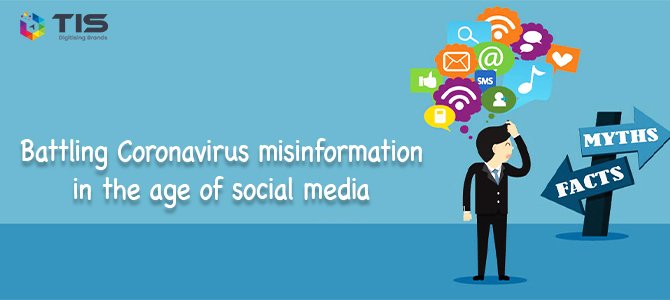Our Offices
USA OFFICE
937, Shore Point Court, # G313,
Alameda - 94501, California, USA.
INDIA OFFICE
C - 81C, Sector - 8,
Noida 201301, UP


Corona Virus has spread like an epidemic; the world is now battling with. The epidemic started in December 2019, when a group of people in the northern Hubei province of China showed the symptoms of an unexplained pneumonia-like condition, creating the apprehension of the emergence of a new kind of disease.
Soon after, scientists started studying the origin of the condition, and they managed to trace the source of the disease. Their findings established a link with the disease to the SARS virus that created havoc in the world 17 years ago.
With time, especially after 2020 setting in, the news of the virus created panic across countries and fuelled demand for information regarding the disease. As such, people turned towards social media for exchanging information and that rendered social media into an indispensable source of the information.
Despite social media turning into a vital information source with respect to the Corona Virus epidemic, it carries a darker side too that is doing more harm than good. That harmful side is nothing other than—spreading misinformation.
In parallel to the information on the disease, the incessant wave of misinformation on social media has turned into an infodemic, which an overabundance of information making it hard for people to find trustworthy sources. On social media, falsehoods are spreading faster than updates by government officials.
Now, let us have a quick look at the most prominent falsehood concerning the disease on social media:
However, social media companies have not remained silent anymore; they actively sprung into counteraction.
They are actively battling the menace of misinformation spreading via their online platforms.
WeChat, the most popular social media platform in China, is putting tools to check out the facts before publishing any content related to the virus.
Other social media websites, such as Twitter, Facebook, and Instagram; are deploying algorithms to allow only the correct content related to the virus gets published. The algorithms check the authenticity of the content by verifying that with trusted sources.
Facebook also said in a recent blog that it will remove all posts with false information related to the virus. In a recent media interaction, Facebook also said that it will ban all ads related to Corona Virus that are misleading or aimed at profiting off from the panic, such as face mask ads claiming masks are a protection against the virus.
At the same time, the fact remains that no filtering algorithm is perfect. And people find new ways to spread false news, either to add fuel to the panic fire or to profit themselves from the panic.
Remarkably, social media is also not without some collaborative efforts despite being flooded with false information related to the Corona Virus. A section of scientists has openly published the Corona Virus genome, inviting researchers to brainstorm possible cures as well as solutions.
At the end of the day, the most powerful solution lies with the people themselves. They should refrain from spreading misinformation on social media to avoid the fear and panic that are going on. Instead, people should provide moral support to the ones affected by the Corona Virus on social media.
Subscription Implies Consent To Our privacy Policy
7 Reasons Why Internet Marketing Is Important For Your Business
The 10 Advantages of Using WordPress for Developing Business Website